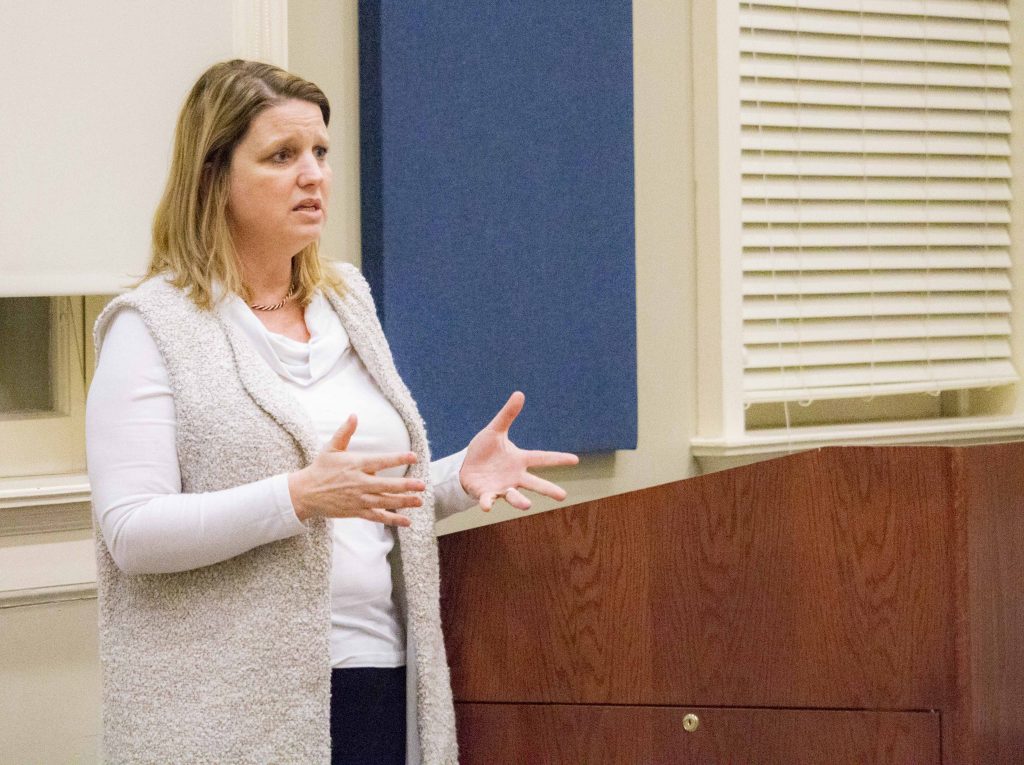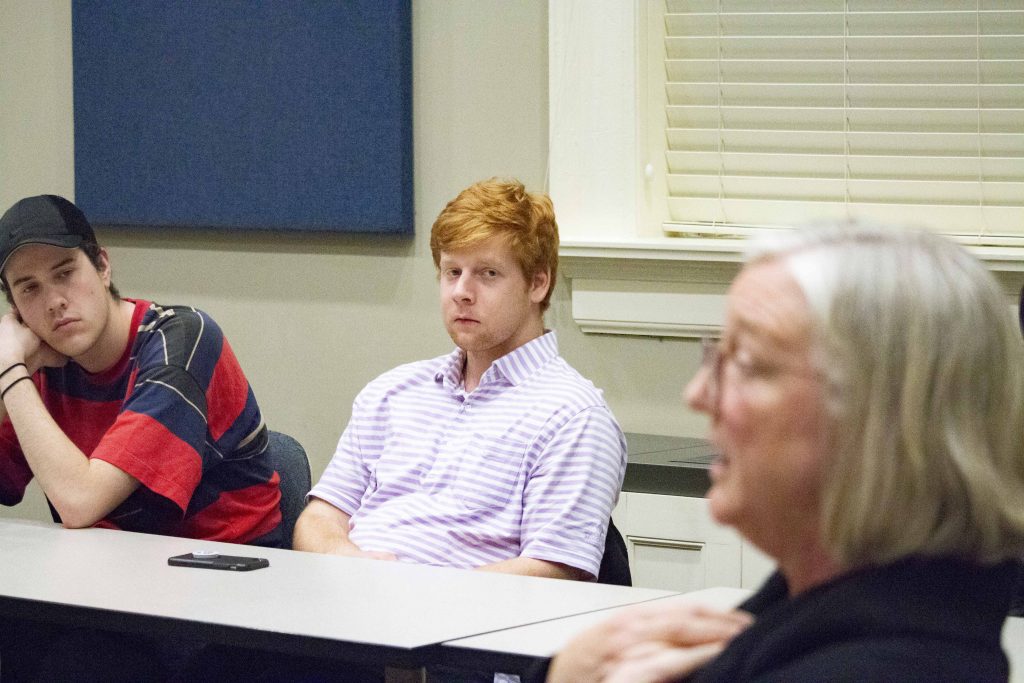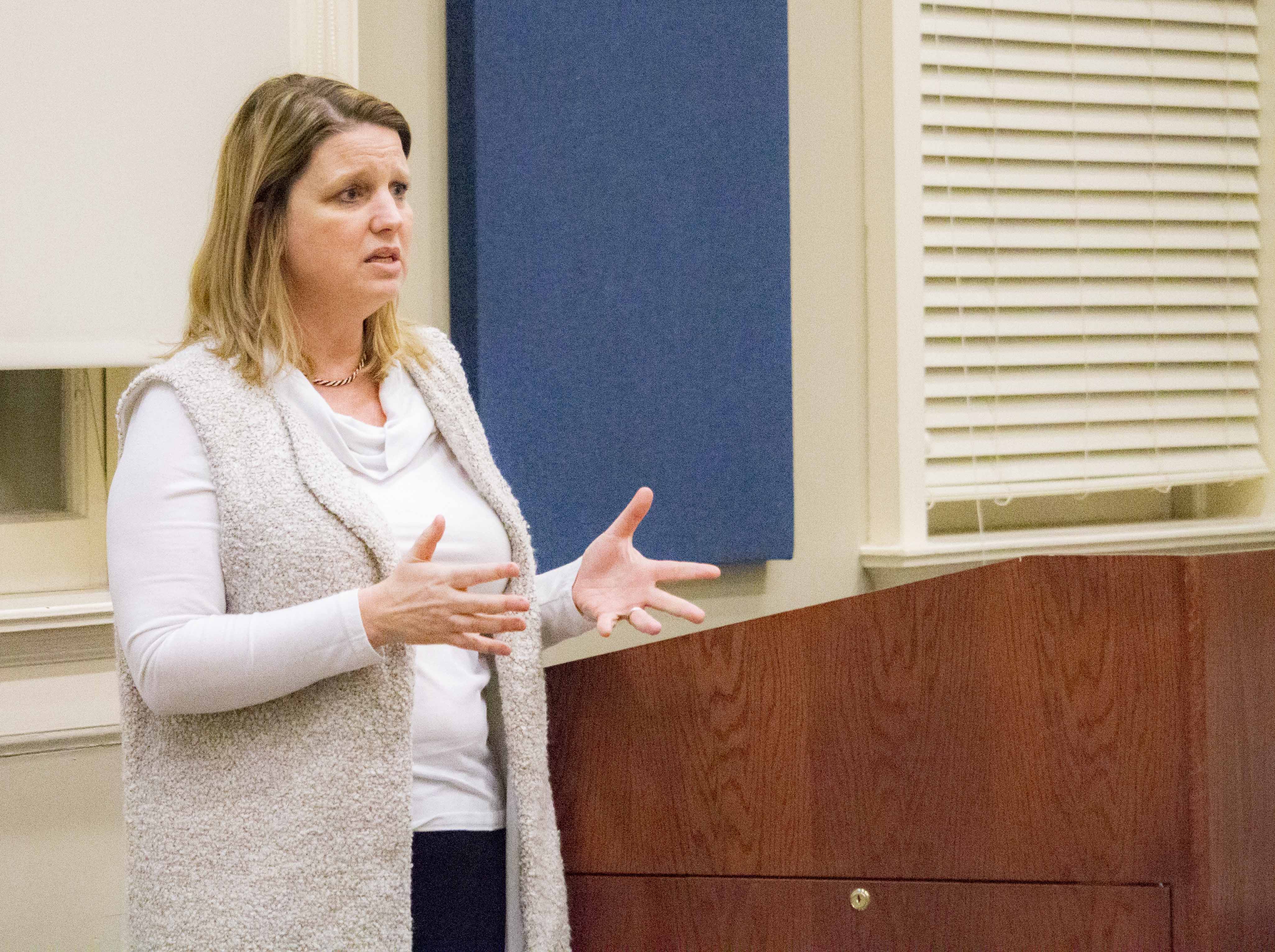Many of the students and faculty in attendance at an open forum on Title IX last night in Bryant Hall disagreed with the Trump administration’s proposed changes to the law. Rebels Against Sexual Assault hosted the discussion with Title IX coordinators and invited students to share their thoughts on the possible changes.
“I feel like (these changes) are going to do way more harm than it would good,” RASA recording secretary Sadie Braddock said.
U.S. Secretary of Education Betsy DeVos proposed the modifications last fall with the main goals of defining sexual harassment and ensuring due process to all students involved in such cases.
Possible changes to the law include narrowing the definition of sexual harassment, allowing each party to designate a personal adviser who would cross examine the other party and disallowing university Title IX offices from handling sexual assault that occur off campus.

Fifty percent of sexual assault cases that the University of Mississippi’s Title IX office handles occur off campus, according to Title IX coordinator Honey Ussery.
Speakers encouraged those in attendance to leave comments on the Title IX page of Regulations.gov, a website that offers citizens a space to share their opinions on possible changes to law. They also showcased the webpages handsoffix.org, and actionnetwork.org.

Other changes to the law include mandating that schools’ Title IX offices must have more than one investigator for each case, granting pauses in Title IX investigations for criminal investigations and preventing Title IX offices from handling stalking and relationship violence cases.
College of Liberal Arts Associate Dean for Diversity and Inclusion Kirsten Dellinger said Title IX provisions have changed drastically since the initial implementation of the original guidelines. Dellinger has taught on campus since 1998 and has served as the dean of the Department of Sociology and Anthropology for 11 years. She accepted the associate dean position this past summer.
Title IX was originally signed into law under President Nixon in 1972 as a part of the Education Amendments Act, and was modified by the Department of Education in a 2011 letter, referred to as the Dear Colleague Letter.
“I was here before (there was a Title IX coordinator on campus) and it is dramatically different to have that kind of very clear resource for students, for faculty,” Dellinger said. “I feel that this current model has made a tremendous difference in the ability for people to get help.”













